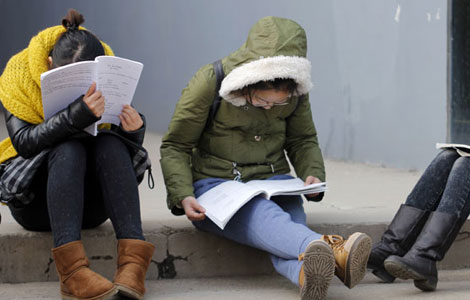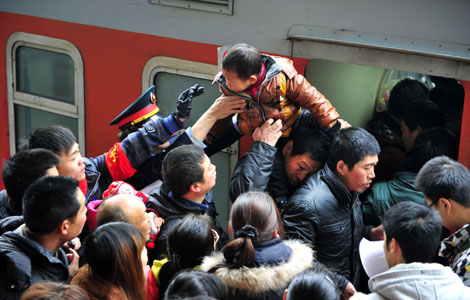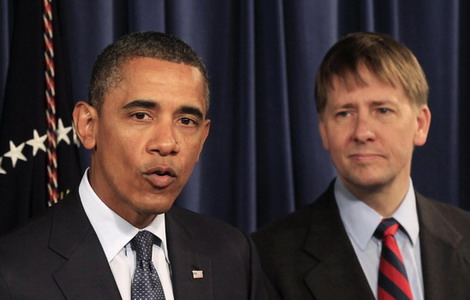Tibet's officials stress management of monasteries
Updated: 2012-01-09 09:25
(Xinhua)
|
|||||||||||
LHASA - Senior officials of Southwest China's Tibet autonomous region have pledged stepped-up efforts to strengthen the management of monasteries in the fight against the Dalai Lama group.
Basang Toinzhub, a senior political advisor in Tibet, said at a meeting of the regional committee of the Chinese People's Political Consultative Conference (CPPCC) on Sunday that it is a top priority to maintain stability, enhance unity, and promote harmony in Tibet because it concerns the stability of the nation.
The official, deputy head of the CPPCC Tibet committee, said the committee will focus this year's work on helping the government strengthen the management of monasteries to push forward the patriotic and legal education among monks and nuns.
Basang Toinzhub's speech came only a day after Chen Quanguo, Tibet's top official, made a similar pledge.
In his visit to Lhasa's Sera Monastery Saturday, Chen told the monastery's monks that stability is not only good for the nation and people but also good for the Tibetan Buddhism and its monasteries.
He urged monks to cherish the current unity and stability and unswervingly fight against the separatist activities of the Dalai Lama group.
Latest statistics show that Tibet has more than 1,700 religious sites, accommodating 46,000 monks and nuns. Nearly 90 percent of the region's 2.8 million people, mostly ethnic Tibetans, are devout Buddhists.
After the deadly riots of March 14, 2008, thousands of local officials were sent to Tibet's monasteries and take turns to stay there as "station cadres" to strengthen monastery management which include promoting the legal awareness of monks and nuns and dissuade them from being duped by separatist forces and ensure the normal practice of Buddhism.
The 14th Dalai Lama, who went into exile in India in 1959, was blamed by the Chinese government to have pulled the strings behind many of the disturbances in China's Tibetan regions including the 2008 riots in Lhasa, which led to the death of at least 18 civilians and one policeman, with businesses looted and residences, shops and vehicles torched.
Related Stories
Forum reaches consensus on Tibet 2011-11-12 08:22
Tibet to invest 380 million yuan in farmland irrigation 2011-11-12 14:31
Senior Chinese official highlights achievements of Tibet 2011-11-11 15:09
China builds new airport on Tibet plateau 2011-12-31 14:08
Hot Topics
Kim Jong-il, Mengniu, train crash probe, Vaclav Havel, New Year, coast guard death, Internet security, Mekong River, Strait of Hormuz, economic work conference
Editor's Picks

|

|

|

|

|

|







